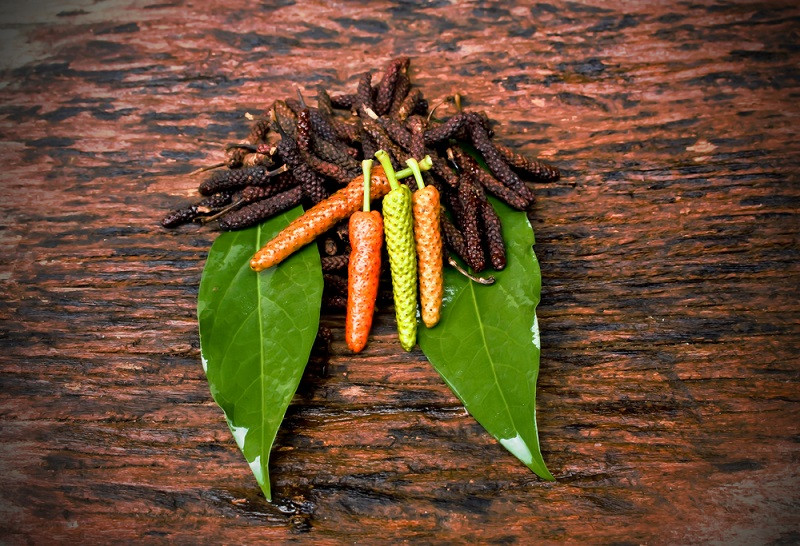Popular Reads
Top Results
Can't find what you're looking for?
View all search resultsPopular Reads
Top Results
Can't find what you're looking for?
View all search resultsMeet 'cabya', chili pepper's weird great uncle
Culinary historian Fradly Rahman said cabya was both native to Java and extremely old. It is still used across Java, but the overwhelming popularity of the capsicum plants eventually crowded out cabya.
Change text size
Gift Premium Articles
to Anyone
C
hili pepper is a staple ingredient in any Indonesian kitchen, so it may come as a surprise to hear that the plant isn’t native to Indonesia at all.
Instead, we have the Javanese long pepper (Piper retrofractum Vahl), locally known as cabya.
As reported by kompas.com, the standard chili peppers we know and love today are members of the plant genus Capsicum. Common variants include Cayenne pepper (Capsicum frutescens) and green chili pepper (Capsicum annuum). These variants are native to North and South America and were introduced to Indonesia in the 16th century by Portuguese and Spanish sailors who had come to Southeast Asia with the product.
The cabya fruit’s shape is somewhat similar to the modern chili pepper. As the fruit matures, it also goes from green to red. However, the texture is unique. While the skin is smooth, it has many small ridges, resembling the fruit of the Swiss cheese plant.
Read also: South Kalimantan village home to Indonesia's hottest chili
According to culinary historian Fradly Rahman, cabya is both native to Java and extremely old. “Referring to the Old-Indonesian Javanese Dictionary from Zoetmulder and Robson (1997) and archaeological research by Timbul Haryono in the Inventory of Food and Beverages in Written Archaeological Sources (1997), the word ‘cabya’ is mentioned in several ancient inscriptions and texts in Java from the 10th century AD,” Fradly said.
The record predates the capsicum’s arrival to our archipelago by more than six centuries.
Cabya is still used in Java, but the overwhelming popularity of the capsicum plants eventually crowded out cabya consumption until it was only used in traditional herbal medication and in making jamu (Indonesian traditional herbal drink).
Nowadays, the plant is considered rare. It is believed to be able to treat anemia, headache and a variety of other ailments. (ayr/wng)











